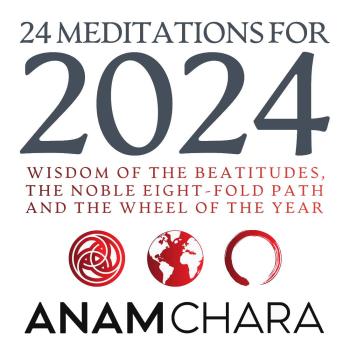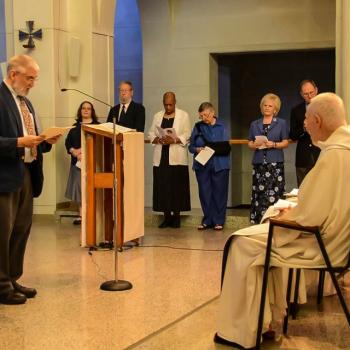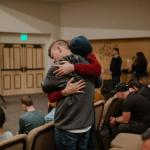Here’s a treat for all you Richard Rohr fans (and if you’re not a Rohr fan, perhaps this is a good introduction to him and his ideas).
This video was recorded at the Science and Nonduality Conference — which is a secular/interfaith gathering of folks exploring (in the words of their website) “a new relationship to spirituality, free from religious dogma, based on timeless wisdom traditions, informed by cutting-edge science, and grounded in direct experience.”
Rohr, as a Catholic priest, has a tightrope to walk here: he is in a setting where dogma, especially religious dogma, is held in suspicion; and yet mystical Christianity is anchored in a view, a way of understanding humanity and the cosmos and the mechanics of consciousness and liberation and transfiguration, all of which could easily be dismissed as “dogma” by those who do not share the underlying language or stories or wisdom traditions that make of the Christian mystical path.
Rohr begins by acknowledging that “nonduality” is not part of Christian language, but points out that the mystical concept of unitive consciousness or spirituality is pretty much the way Christians have talked about what others label non-dual.
He goes on to point out that the problem with Christianity is not so much its dogma as the fact that Christianity has suffered from the marginalization of contemplative practice. He borrows a page from Cynthia Bourgeault’s playbook and describes prayer as a “different operating system,” a playful way of suggesting that, at its heart, prayer invites us into a transfigured consciousness, where I and God are not-two.
He goes on to suggest that Jesus did not teach non-duality (I’m not sure I agree with him), but that he lived it (no argument there); he points out that unitive wisdom crops up throughout the tradition, citing the Desert Fathers and Mothers and medieval wisdom writings like The Cloud of Unknowing as examples.
“How we in organized Christianity got in trouble,” says Rohr, “is we largely read — and I mean largely, overwhelmingly — read the words of Jesus, who was talking non-dually, mystically — and I use those words almost interchangeably — we read him with a dualistic mind, an argumentative mind, which meant from the get-go to misunderstand what he was talking about.”
He points out how the transition of Christianity from a marginal/underground faith to a mainstream church in the 4th century began the decline of Christianity from a wisdom tradition to a religious institution. But of course, that’s also the time of the Desert tradition, which in turn led to the rise of monasticism, which became the container in which contemplative wisdom and practice was preserved for centuries — as expressed by the great monastic mystics of the middle ages.
He goes on to explain apophatic spirituality — the spirituality of so-called negative theology, of darkness and unknowing as the arena through which the mystery of God encounters us — as the primary vehicle by which Christian contemplation was preserved over the ages. He contrasts this with how the argumentative nature of so much propositional (dogmatic?) religion, which reached its apex in the “food fights” of the Reformation, led to, in his words, the “death of the contemplative mind.”
“Once you need to prove that you’re right and someone else is wrong, that you’re the in group and they’re the out group, what you have is the dominance of ego,” Rohr wryly notes. “And once the ego is center-stage, there is no possibility of contemplation, it’s all about you, it’s all self-referential, and thinking declines.”
And on he goes, doing a very nice job at making the case that Christianity needs to reclaim its contemplative roots — and that contemplatives from outside of the Church should remember that beneath the excesses of the self-protective institution, there remains a mystical heart within the Christian tradition.
There’s lots more here — but you don’t need to read me write about it. Just watch the video.
Enjoy reading this blog?
Click here to become a patron.














